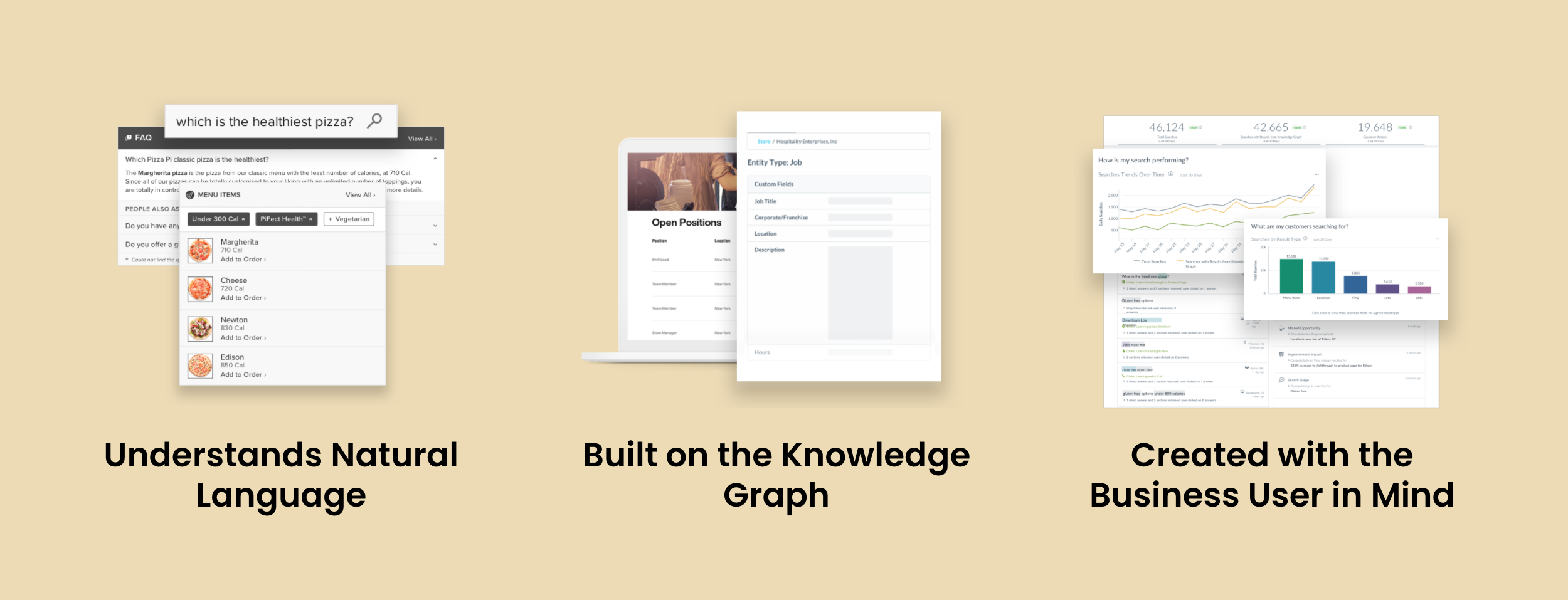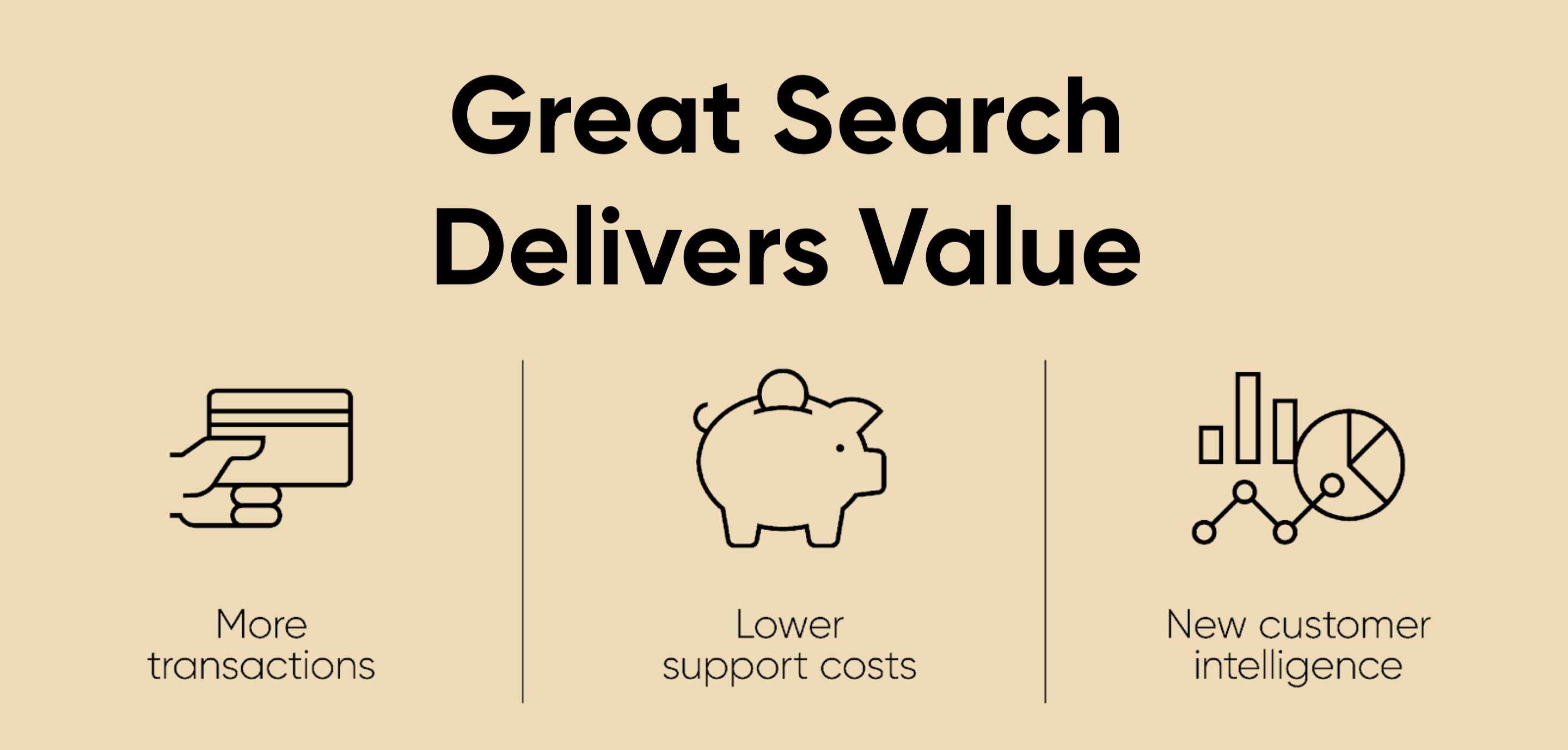How Yext Helps You Optimize Your Enterprise Search | Yext Hitchhikers Platform
What You’ll Learn
In this section, you will learn:
- Introduction to Yext Search
- Main benefits of Search
Introduction to Yext Search

Yext Search is an AI-powered search platform built to optimize your users’ search experience. It is different from other search solutions for three reasons:
First, it understands natural language: Unlike other search solutions that rely on keyword-based search to crawl all of the documents on your website and match strings of text to surface relevant results — only to deliver a list of links — Search uses structured search that understands natural language and delivers clear, concise answers in the form of knowledge cards, maps, and other relevant results. Yext Search understands what the consumer wants, not just the keywords they entered. Whether you’re searching with a single keyword or a long question, Search understands all kinds of search queries — and then it parses out the user’s intent to return those great answers we talked about.
Second, it’s built on the Yext Knowledge Graph, so search is just one of many experiences that your brand’s data can power. Your Knowledge Graph stores all of the public facts about your brand — and the relationships between them — so that AI-powered services of all kinds can surface answers wherever your customers are searching.
And finally, it’s built for multiple persons, meaning that anyone can build on top of it – whether you are a line of business user or a full stack developer. We have integration options that come ready out of the box and pre-built with all the tech and user interface, and we also have other integration options such as a low-level Search API that allow full-stack developers to create other use-cases such as a chatbot.

Multi-Algorithm Approach
In order to provide the best search experience possible, Yext Search incorporates several unique algorithms. The performance of an algorithm will vary depending on the query and the type of results the searcher is looking for, which means that one single algorithm will never be the best all of the time. In order to optimize performance across all queries, Yext Search relies on different algorithms in different circumstances.
After using Natural Language Processing to understand and map the user’s input, the Search Algorithms can then detect location of the user, make spellcheck suggestions, detect filters, output query suggestions, return matched Knowledge Graph entities, return featured snippets and direct answers, and more.
The 3 algorithms in our Multi-Algorithm story include:
- Named Entity Recognition (best for structured data like locations, events, products, jobs, doctors, or advisors)
- Semantic Search (best for semi-structured data like frequently asked questions)
- Document Search (best for unstructured data such as Blogs, News Articles, Press Releases, Bios, Product Manuals, or Help Articles).
The best part is that every Yext Algorithm gets smarter over time. You can learn more about the Multi-Algorithm Approach in the Search Algorithm unit.
Main benefits of Search
When you exceed user expectations with a great search experience, it helps drive success of your strategic goals.
Great answers mean higher conversion rates, which means higher engagement.
They also mean lower costs, because when more people can find what they want on their own, you spend less on live chat, support centers, email, and other costly help channels.
And lastly, by seeing how your users search, you unlock a new source of customer intelligence that you can use to improve your Knowledge Graph and your other marketing strategies.

True or False: Search understands what the consumer wants, not just the keywords entered.
Which of the following are reasons that Search is different from other search solutions? (Select all that apply)
Which of the following is NOT a main benefit of Search?
Way to go, you passed! 🏁

